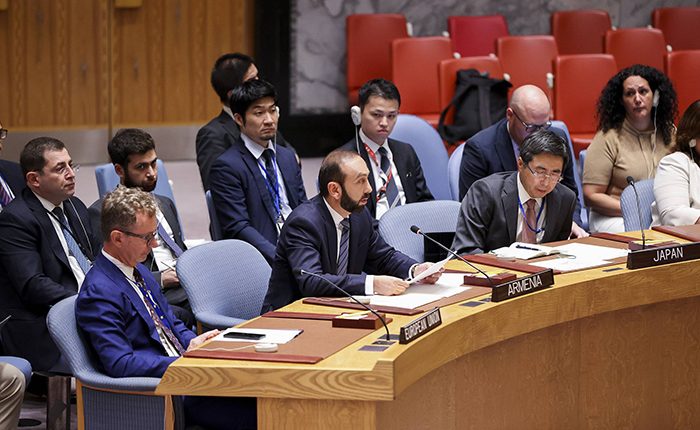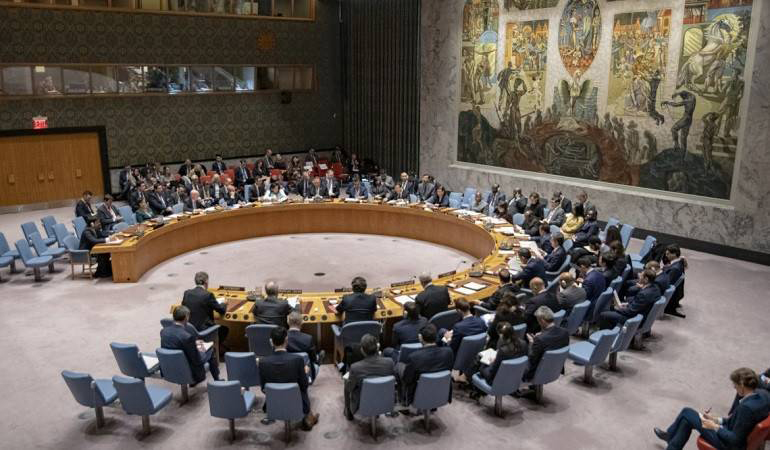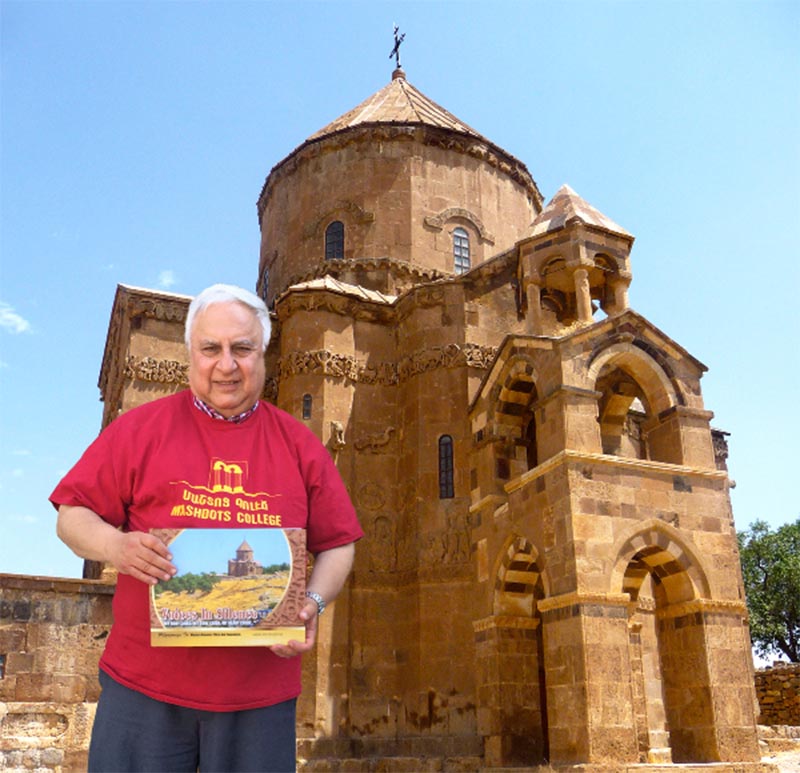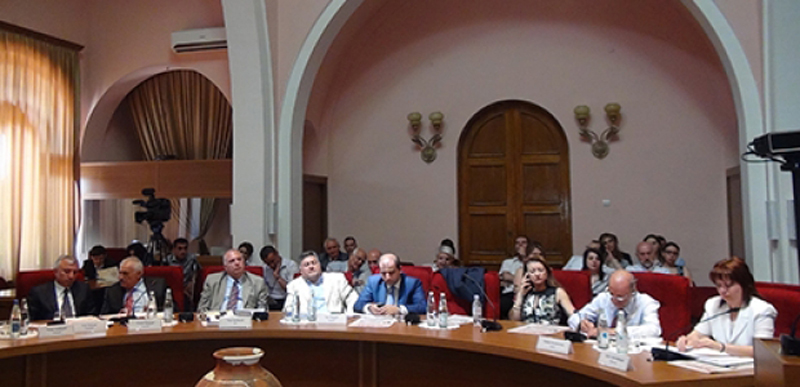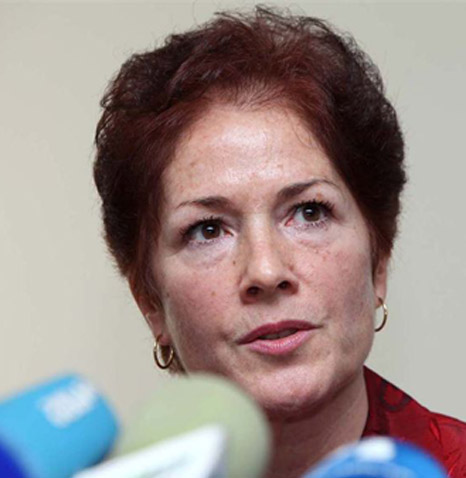NEW YORK — Armenia anticipates a condemnation from the UN Security Council concerning the utilization of starvation as a method of warfare against civilians, the unlawful denial of humanitarian aid, and the deprivation of Nagorno-Karabakh’s civilian population from essential survival necessities. Armenia expects the council to demand full compliance with international humanitarian law, call for the immediate restoration of the Lachin Corridor, and advocate for the freedom and secure movement of individuals, vehicles, and goods, in accordance with previously agreed arrangements. Foreign Minister Ararat Mirzoyan communicated these expectations during an emergency session of the UN Security Council on Wednesday.
Official Yerevan also envisions the council ensuring complete cooperation with the International Committee of the Red Cross for the safe and unimpeded delivery of humanitarian aid. Furthermore, Armenia calls for an independent inter-agency needs assessment mission to be dispatched to Nagorno-Karabakh and the provision of humanitarian aid to the affected population. These positions were presented by Mirzoyan during the meeting, which Azerbaijan had convened at Armenia’s request, in response to the deteriorating humanitarian situation resulting from the blockade of the Lachin Corridor and the complete isolation of Nagorno-Karabakh.
“These humanitarian issues must be addressed with decisive intervention from the international community, as failure to do so could lead to the ethnic cleansing of Nagorno-Karabakh’s people. According to elected representatives from Nagorno-Karabakh, this constitutes a premeditated crime aimed at genocide. The Azerbaijani authorities deliberately instigated the Lachin Corridor blockade, fully aware that it would lead to the gradual destruction of Nagorno-Karabakh’s entire population. However, they chose to persist with this course of action,” emphasized the head of Armenia’s foreign policy department.
Mirzoyan, presenting factual information and statistics, highlighted the chronology and consequences of the eight-month blockade of the Lachin Corridor, the sole route linking Nagorno-Karabakh with Armenia and the external world. He quoted Luis Moreno Ocampo, the former prosecutor of the International Criminal Court, who asserted that the ongoing events in Nagorno-Karabakh constitute genocide. Ocampo argued that the Azerbaijani security forces’ blockade of the Lachin Corridor, impeding access to food, medical supplies, and essential necessities, qualifies as genocide under Article II, paragraph (c) of the Genocide Convention. He reasoned that deliberately creating dire living conditions equates to physical destruction, with hunger serving as an invisible weapon of genocide. Without swift and substantial changes, this group of Armenians could be wiped out within weeks.
“The primary responsibility for averting such a catastrophe rests with the United Nations and this Council. I firmly believe that this esteemed institution, despite geopolitical disparities, can function as a structure for preventing genocide rather than merely commemorating it. It’s imperative that action is taken before it’s too late,” the minister declared.
“In recent months, many of you have made efforts to address the issue of reopening the Lachin Corridor. Regrettably, despite all appeals, the situation has not improved in line with the obligations outlined in the tripartite declaration of November 9 and the legally binding decisions of the International Court of Justice in 2020. On the contrary, Azerbaijan has progressively intensified the blockade, culminating in a total siege of Nagorno-Karabakh. Armenia has consistently voiced concerns about the deepening humanitarian crisis resulting from the Lachin Corridor’s closure during negotiations with Azerbaijan, facilitated and mediated separately by the USA, the EU, and Russia. However, these efforts have proven futile,” Mirzoyan noted emphatically.
“Azerbaijan’s involvement throughout this period can be characterized in many ways, but certainly not in good faith. During the initial Security Council discussion on this matter, Azerbaijan disavowed any responsibility for its actions and even asserted a lack of control over the Lachin Corridor. Over the past eight months, Azerbaijan has presented a range of justifications for its actions. Initially, there were claims of eco-activism, supposedly concerned with environmental protection, followed by unsubstantiated allegations of weapons trafficking through the Lachin Corridor, subsequently evolving into military provocations, and so forth.”
“The Lachin Corridor was established as a link between Armenia and Nagorno-Karabakh, and there is no viable alternative. The Corridor must be reopened, and the matter of other potential communications should be resolved within the framework of the Baku-Stepanakert dialogue, an international mechanism,” the head of Armenia’s foreign policy department asserted.
“Today, my purpose here is to seek the support of this esteemed body in preserving the potential for achieving equitable and comprehensive peace and stability in our region. Azerbaijan’s role in precipitating a humanitarian disaster in Nagorno-Karabakh is eroding this prospect. Over the past two years, Armenia, in collaboration with the international community, has spared no effort to establish peace and stability in our region. I remain convinced that there is still an opportunity to realize this goal today. However, the prevailing humanitarian crisis in Nagorno-Karabakh has the potential to significantly worsen the prospects for peace not only in the South Caucasus region but also beyond,” Ararat Mirzoyan affirmed.

